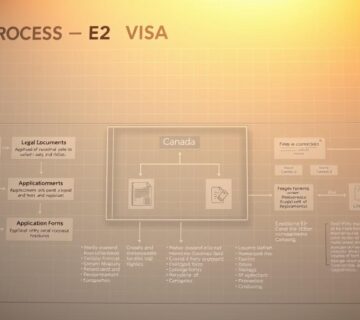Table of Contents
Did you know that signature forgery can lead to severe legal consequences, including up to 10 years in prison under Canadian law? A recent case involving a couple who forged signatures on a BMW lease agreement resulted in a $21,000 loss for the company and a $1 million claim for damages. This highlights the serious repercussions of such actions.
Signature forgery is defined as creating or altering a document with fraudulent intent. Under the Criminal Code of Canada, this offense can lead to significant penalties. The legal implications extend beyond financial loss, affecting one’s reputation and future opportunities.
If you’re facing charges related to signature forgery, it’s crucial to seek expert legal advice. Sohi Law Group, a trusted name in Canadian legal services, specializes in such cases. Contact them at 833-877-9797 for professional guidance and support.
This article will delve into the legal framework surrounding signature forgery, its penalties, and the importance of understanding your rights. Stay informed to protect yourself from potential legal pitfalls.
Overview of Forgery and Its Legal Implications
Forgery is a serious offense under Canadian law, involving the creation or alteration of documents with fraudulent intent. Understanding the legal framework surrounding this crime is crucial for recognizing its implications.
Key Legal Definitions and Terminology
A forged document refers to any item altered or created with the intent to deceive. This includes checks, wills, and identification documents. The Criminal Code of Canada defines such actions under specific sections, outlining the legal consequences.
The term false document is used to describe items that are not genuine but are presented as authentic. To commit forgery means to intentionally create or alter a document to defraud someone, which is a criminal act.
Historical Context in Canadian Law
Historically, Canadian law has treated forgery with severity. Early laws were broad, but modern legislation has refined definitions, distinguishing between types of forged documents and their legal ramifications.
Police and legal agencies rely on these definitions to investigate and prosecute cases effectively. Understanding these terms helps individuals and professionals navigate legal situations with clarity.
Sohi Law Group specializes in clarifying these complex legal definitions, ensuring clients understand their rights and obligations. Their expertise helps individuals facing such charges navigate the legal system with confidence.
What Constitutes Signature Forgery in Canada
Signature forgery in Canada is a serious criminal offence that involves creating or altering a document with the intent to deceive. This offence falls under the Criminal Code of Canada and can lead to severe legal consequences.
According to the Criminal Code, a false document is one that is made or altered with the intent to defraud. This includes documents such as checks, contracts, and identification papers. The legal implications of such actions can be significant, with penalties ranging from fines to imprisonment.

A key aspect of signature forgery is the intent to deceive. For a document to be considered forged, it must be created or altered with the intention of being used as genuine. This means that the person creating or altering the document must know that it is false and intend for it to be accepted as authentic.
The Criminal Code also distinguishes between different types of forgery offences. For example, making or possessing forgery instruments can lead to more severe penalties than simply using a forged document. Understanding these distinctions is crucial for anyone facing charges related to forgery.
It’s important to seek legal advice if you are facing charges related to signature forgery. Zamani Law specializes in such cases and can provide expert guidance and support. Additionally, Sohi Law Group offers professional legal services for individuals dealing with various criminal offences.
The Legal Process for Forgery Cases in Canada
Understanding the legal process for forgery cases in Canada is essential for navigating the criminal justice system. The process involves several key steps, from investigation to court proceedings, each with its own set of rules and implications.
Investigation Procedures and Charges
When a forgery case is initiated, law enforcement agencies conduct a thorough investigation. This typically involves gathering evidence, interviewing witnesses, and analyzing documents. Under the Criminal Code, forgery-related charges can vary depending on the severity of the offence. For instance, charges may be laid under sections 366, 367, or 368, each carrying different potential penalties.
Court Procedures and Potential Outcomes
In court, forgery cases progress through a structured process. This includes the initial appearance, disclosure of evidence, and potential plea negotiations. If the case proceeds to trial, the prosecution must prove intent to deceive beyond a reasonable doubt. The outcome can range from a summary conviction with a fine or short imprisonment term to more severe penalties, including up to 10 years in prison for indictable offences under the Criminal Code.

It’s crucial to seek expert legal advice when facing such charges. Sohi Law Group specializes in criminal defence, offering guidance and support to navigate the complexities of the legal system.
Understanding the penalty for signature forgery
Signature forgery carries significant legal consequences in Canada, with penalties varying based on the offence’s severity and the offender’s intent. The Criminal Code of Canada outlines that indictable offences can lead to imprisonment for up to 10 years, while summary convictions may result in shorter imprisonment terms or fines.
| Offence Type | Maximum Penalty | Key Considerations |
|---|---|---|
| Indictable Offence | Up to 10 years imprisonment | Involves intent to defraud and serious document alteration. |
| Summary Conviction | Shorter imprisonment or fines | Less severe cases with minimal financial impact. |
The court considers the offender’s intent and knowledge when determining penalties. Even minimal intent to deceive can lead to serious consequences. For instance, creating a false document, regardless of its intended use, is a criminal act under Canadian law. Sohi Law Group specializes in such cases, offering expert legal guidance to navigate these complex charges.

Potential Mitigating Factors and Defenses
When facing charges related to criminal offences, understanding the potential defenses and mitigating factors can significantly impact the outcome. These elements help reduce the severity of sentences, offering a more favorable resolution for the accused.
Circumstances Influencing Sentencing
In Canadian courts, the sentencing process considers various factors that may lessen the punishment. A person’s intent and knowledge play crucial roles. If the intent was not malicious or the action was unintentional, the court may view the case more leniently. Additionally, the offender’s background, such as a clean criminal record, can influence the sentence, potentially leading to a more lenient outcome.
Summary Conviction vs. Indictable Offences
The distinction between summary conviction and indictable offences is vital. Summary convictions typically result in less severe penalties, such as fines or shorter imprisonment, and are often used for less serious cases. Indictable offences, however, carry more significant consequences, including longer imprisonment terms. The court’s decision hinges on the offence’s severity and the circumstances surrounding the case. Consulting legal experts, such as those at Sohi Law Group, can provide clarity and strategic defense options for either type of offence.

Legal experts emphasize that understanding these distinctions and potential defenses is crucial for anyone facing charges. Seeking professional guidance ensures that all factors are considered, potentially leading to a more favorable outcome.
Implications for Documents and Financial Offences
Document falsification can have far-reaching consequences, particularly in financial transactions. In Canada, such offences often involve severe legal repercussions, including fines and potential jail time. The Criminal Code classifies these offences under different categories, with indictable offences liable to more substantial penalties compared to summary convictions.
A key aspect of these cases is the intent to deceive, which can lead to charges under specific criminal provisions. For instance, creating or altering a document with fraudulent intent can result in significant legal consequences. The impact on financial transactions is particularly notable, as forged documents can undermine the legitimacy of contracts, checks, and other legal papers.
| Offence Type | Maximum Penalty | Key Considerations |
|---|---|---|
| Indictable Offence | Up to 10 years imprisonment | Involves intent to defraud and serious document alteration. |
| Summary Conviction | Fines or shorter imprisonment | Less severe cases with minimal financial impact. |
According to a recent report by CBC, financial industry employees are more likely to engage in document falsification than one might think. This trend highlights the importance of maintaining the integrity of official documents. Sohi Law Group specializes in addressing such legal challenges, offering expert guidance to navigate these complex issues.

How Sohi Law Group Can Assist You
Navigating the complexities of criminal charges requires expert legal support. Sohi Law Group stands as a trusted partner, offering specialized guidance in cases involving document falsification and related offences.
With extensive knowledge of the Criminal Code, their team provides clear, actionable advice tailored to your situation. Whether you’re facing charges or need preventive legal strategies, Sohi Law Group ensures you’re well-informed and prepared.

Expert Legal Guidance and Support
Their approach combines professional expertise with an accessible, compassionate tone, making complex legal matters understandable. Sohi Law Group’s mission is to connect individuals with the legal expertise they need, ensuring services are both accessible and clear.
| Service Type | Details | Benefits |
|---|---|---|
| Consultations | Comprehensive legal evaluation of your case | Clarifies your legal standing and options |
| Legal Services | Counseling and representation in court | Expert navigation of the legal process |
| Criminal Code Expertise | Specialized knowledge of relevant laws | Strategic defense tailored to your case |
For immediate assistance, contact Sohi Law Group at 833-877-9797. Their dedicated team is ready to provide the support you need to navigate your legal challenges effectively.
Conclusion
In Canada, document falsification is treated as a serious offence with significant legal consequences. Understanding the legal framework surrounding such offences is crucial for recognizing their implications and seeking appropriate legal recourse.
The key points discussed in this article highlight the importance of recognizing the legal definitions and potential penalties associated with such offences. The legal implications extend beyond financial loss, affecting one’s reputation and future opportunities.
For those facing charges related to document falsification, seeking expert legal advice is essential. Sohi Law Group specializes in such cases, offering professional legal services to navigate the complexities of the legal system effectively.





No comment